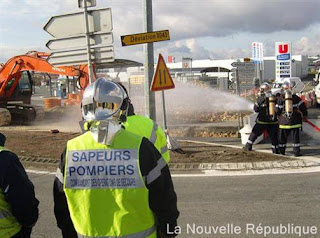enseigner = to teach
l'enseignment = teaching/teachings
l'enseignement du Bouddha
étudier } to study
faire des études }
suivre un cours = follow a course
le cours = lesson / course
les cours = lessons / courses
la leçon = lesson
suivre = to follow (irregular verb)
je suis nous suivons
tu suis vous suivez
il suit ils suivent
elle suit elles suivent
faire du babysitting = to babysit
garder les enfants = to look after the children
une école maternelle = nursery school
prendre = to take something (somewhere)
emmener = to take someone (somewhere)
e.g. Linda emmene son petit-fils à l'école maternelle
Elle prend son livre au cours de bouddhisme
avoir l'air = to seem (click on link to see a previous post)
un pourboire = tip




